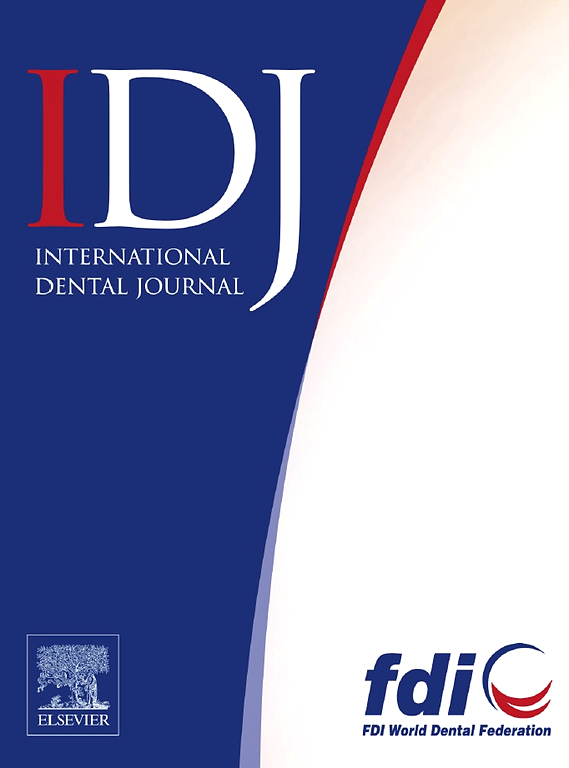诊断信心和口腔癌筛查:来自匈牙利全国横断面研究的见解
IF 3.2
3区 医学
Q1 DENTISTRY, ORAL SURGERY & MEDICINE
引用次数: 0
摘要
目的口腔癌筛查是一项重要的预防措施,但各种因素影响着医护人员参与口腔癌筛查的意愿。匈牙利的这项全国性横断面研究调查了诊断自信、知识和专业背景对牙医、医生和临床级医学和牙科学生口腔癌筛查和咨询行为的影响。方法对803名参与者进行问卷调查,评估他们的筛查实践、知识、信心和教育需求。结果表明,诊断自信是筛查和咨询行为的关键决定因素,超过了客观知识的影响。与内科医生和医科学生相比,牙医和牙科学生的筛查率更高,反映了教育重点的差异。虽然大多数受访者承认他们在口腔癌知识方面存在差距,但相对较少的人表示对进一步培训有强烈兴趣。在线学习成为首选的教育形式,这表明专业人士青睐的方法可能不是提高他们筛选和咨询能力的最佳选择。结论这些发现表明,教育干预不仅需要提高知识水平,还需要建立早期发现和患者沟通的信心。未来的研究应该探索培训策略,有效地弥合知识和实践之间的差距,确保医疗保健专业人员既准备好又有动力参与常规口腔癌筛查和预防工作。此外,确定参加继续教育的障碍有助于根据专业需求和时间限制量身定制学习机会。了解这些因素对于优化口腔癌检测和减轻疾病负担至关重要。本文章由计算机程序翻译,如有差异,请以英文原文为准。
Diagnostic Confidence and Oral Cancer Screening: Insights From a Nationwide Cross-Sectional Study in Hungary
Objectives
Oral cancer screening is a critical preventive measure, yet various factors influence healthcare professionals’ willingness to engage in it. This nationwide cross-sectional study in Hungary examined the impact of diagnostic self-confidence, knowledge, and professional background on oral cancer screening and advisory behaviours among dentists, physicians, and clinical-grade medical and dental students.
Methods
A questionnaire-based survey was conducted among 803 participants to assess their screening practices, knowledge, confidence, and educational needs.
Results
Results indicated that diagnostic self-confidence was a key determinant of both screening and advisory behaviours, surpassing the impact of objective knowledge. Dentists and dental students demonstrated higher screening rates compared to physicians and medical students, reflecting differences in educational emphasis. While most respondents acknowledged gaps in their oral cancer knowledge, relatively few expressed a strong interest in further training. Online learning emerged as the preferred educational format, suggesting that the methods professionals favour may not be optimal for enhancing their screening and advisory abilities.
Conclusions
These findings demonstrate the need for educational interventions that not only improve knowledge but also build confidence in early detection and patient communication. Future studies should explore training strategies that effectively bridge the gap between knowledge and practice, ensuring that healthcare professionals feel both prepared and motivated to engage in routine oral cancer screening and prevention efforts. Additionally, identifying barriers to participation in continuing education could help tailor learning opportunities that align with professional demands and time constraints. Understanding these factors is essential for optimizing oral cancer detection and reducing the burden of disease.
求助全文
通过发布文献求助,成功后即可免费获取论文全文。
去求助
来源期刊

International dental journal
医学-牙科与口腔外科
CiteScore
4.80
自引率
6.10%
发文量
159
审稿时长
63 days
期刊介绍:
The International Dental Journal features peer-reviewed, scientific articles relevant to international oral health issues, as well as practical, informative articles aimed at clinicians.
 求助内容:
求助内容: 应助结果提醒方式:
应助结果提醒方式:


